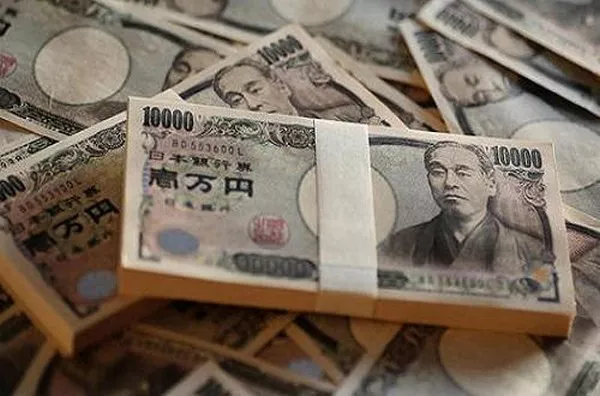The foreign exchange market, often referred to as Forex, is a dynamic platform where currencies are traded. With trillions of dollars exchanged daily, understanding how to convert one currency into another is crucial for traders, investors, and travelers. In this article, we will explore the conversion of Japanese yen (JPY) to British pounds (GBP) and discuss the factors influencing currency exchange rates.
Understanding Currency Conversion
Currency conversion is the process of exchanging one currency for another. The exchange rate is the value of one currency in relation to another. For example, if the exchange rate between JPY and GBP is 0.0062, it means that 1 yen is equivalent to 0.0062 pounds.
To convert 100,000 yen to pounds, you simply multiply the amount in yen by the exchange rate.
Calculation Example:
- If the exchange rate is 0.0062 GBP/JPY,
- The conversion would be:
100,000 JPY×0.0062 GBP/JPY=620 GBP
However, exchange rates fluctuate due to various factors, including market demand, economic indicators, and geopolitical events.
The Importance of Exchange Rates
Exchange rates are essential for several reasons:
International Trade: Businesses that import or export goods need to convert currencies to complete transactions. A favorable exchange rate can enhance profitability.
Investments: Investors trading in foreign stocks or bonds must convert their home currency into the currency of the investment.
Travel: Travelers need to exchange currency to pay for goods and services in a foreign country. Understanding the exchange rate can help travelers manage their budgets effectively.
Factors Influencing Currency Exchange Rates
Interest Rates:
Central banks set interest rates to control inflation and stabilize their economies. Higher interest rates often attract foreign capital, increasing demand for a currency and raising its value.
Conversely, lower interest rates may lead to depreciation as investors seek better returns elsewhere.
Economic Indicators:
Economic data such as GDP growth, unemployment rates, and inflation can influence currency values. Strong economic performance generally leads to a stronger currency, while weak performance may lead to depreciation.
Political Stability:
Countries with stable governments tend to have stronger currencies. Political uncertainty can lead to decreased investor confidence and currency depreciation.
Market Sentiment:
Trader and investor perceptions can impact currency values. If traders believe a currency will strengthen, they may buy it, driving up its value.
Supply and Demand:
Currency values are driven by supply and demand dynamics. If more people want to buy a currency than sell it, its value will increase.
How to Check Current Exchange Rates
To find the current exchange rate between yen and pounds, you can use various sources:
Online Currency Converters: Websites like XE.web, OANDA, and Google Finance provide real-time exchange rates.
Bank Rates: Banks and financial institutions offer currency exchange services, but rates may vary from market rates due to fees.
Forex Trading Platforms: Traders can access real-time data on currency pairs, including JPY/GBP, through trading platforms like MetaTrader and TradingView.
Currency Exchange Fees
When converting currencies, it’s essential to consider any fees that may apply. Currency conversion services often charge a fee or offer less favorable rates compared to the interbank rate (the rate banks charge each other). Here are some typical fees to be aware of:
Bank Fees: Banks may charge a flat fee or a percentage of the transaction for currency exchange.
ATM Fees: If you withdraw cash in a foreign currency from an ATM, there may be additional fees.
Service Charges: Currency exchange kiosks at airports or tourist areas may charge higher fees or offer poor exchange rates.
Tips for Currency Conversion
Monitor Exchange Rates:
Keep an eye on exchange rates before making conversions. Rates fluctuate, and timing your conversion can save money.
Use Reliable Sources:
Use reputable banks or currency exchange services to ensure you get a fair rate.
Consider Online Transfers:
Online money transfer services like Wise or Revolut may offer better rates and lower fees compared to traditional banks.
Avoid Airport Exchanges:
Currency exchange at airports often comes with high fees and poor rates. It’s best to exchange money beforehand or withdraw from ATMs.
The Role of Forex Traders
Forex traders play a vital role in the currency market. They buy and sell currencies to profit from fluctuations in exchange rates. Successful trading requires understanding market trends, analyzing economic data, and managing risks. Here are some strategies traders use:
Technical Analysis:
Traders analyze historical price data and charts to predict future price movements.
Fundamental Analysis:
Traders examine economic indicators and news events to understand the underlying factors affecting currency values.
Risk Management:
Effective risk management strategies, such as setting stop-loss orders, help traders minimize losses.
Leverage:
Forex trading often involves leverage, allowing traders to control larger positions with smaller amounts of capital. However, this increases the potential for both gains and losses.
Currency Hedging
Hedging is a risk management strategy used by traders and businesses to protect against adverse price movements. For instance, a UK-based company importing goods from Japan may use currency hedging to lock in an exchange rate, protecting against potential losses due to currency fluctuations.
Forward Contracts:
Businesses can enter into contracts to buy or sell a currency at a predetermined rate on a specific date in the future.
Options:
Options provide the right, but not the obligation, to buy or sell a currency at a specific price, allowing for flexibility in uncertain markets.
Conclusion
In conclusion, understanding how much 100,000 yen is in pounds requires knowledge of current exchange rates and the factors influencing those rates. Currency conversion is an essential aspect of international trade, investment, and travel.
By understanding the nuances of currency conversion and the various factors that influence exchange rates, you can navigate the foreign exchange market more effectively. The journey of converting currencies, while seemingly straightforward, involves numerous intricacies and opportunities that can significantly impact financial outcomes.
Related Topics:
- Current YEN Exchange Rate: 300 Million Yen in USD
- Current YEN Exchange Rate: 40,000 Yen to GBP
- Current YEN Exchange Rate: 5,000 Yen in Dollars


